Having a plant-based meal plan, even just for dinners, can help tremendously with your family’s health and grocery budget… but only if you actually follow it! Otherwise you’re left with wilty produce, take-out (again), and possibly a side dish of feeling defeated.
Thanks to the wisdom of many moms who have come before me and slayed the dinner dragon, I have successfully identified and implemented these lynchpin habits that help me feed my family better.
Without further ado:
1. Match your Meal Plan to Your Reality
I find that meal planning when I’m already a little wiped out at the end of the day is better than making a plan when I’m feeling all optimistic and energetic.
Seriously.
It’s just a little too easy to jot down a complicated, delicious-sounding NEW recipe and pencil it in for 6 days from now. “Surely on that day I’ll have a free hour before dinner with no phone ringing or baby crying.” It doesn’t work like that at my house! The pre-dinner hour is sometimes cah-razy. And if I keep that in mind when I’m planning my meals, the plan is much more realistic.
I look at my week ahead and make sure I’ve got leftover nights, crockpot nights or pull-something-from-the-freezer nights. All of those are fine options for dinner when I plan on them. If instead I plan for something from scratch every night, I’ll probably be serving up peanut butter sandwiches while my kale droops in the back of the fridge.
Another key principle here for me is to not put too many new recipes on the menu for a week. I like to mix things up, but the reality is that anytime I make something new, it takes longer because I’m unfamiliar with it.
Busy night green light. Simple, tasty, healthy. Nothing to write home about:
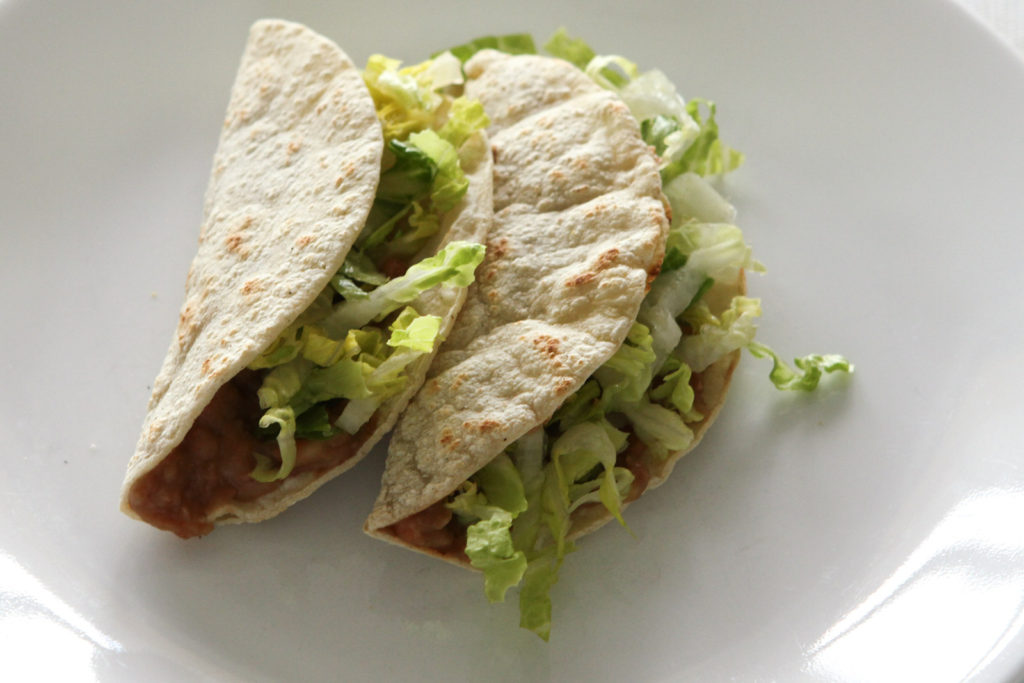
Danger, Will Robinson. This plan might get abandoned on a crazy weeknight:
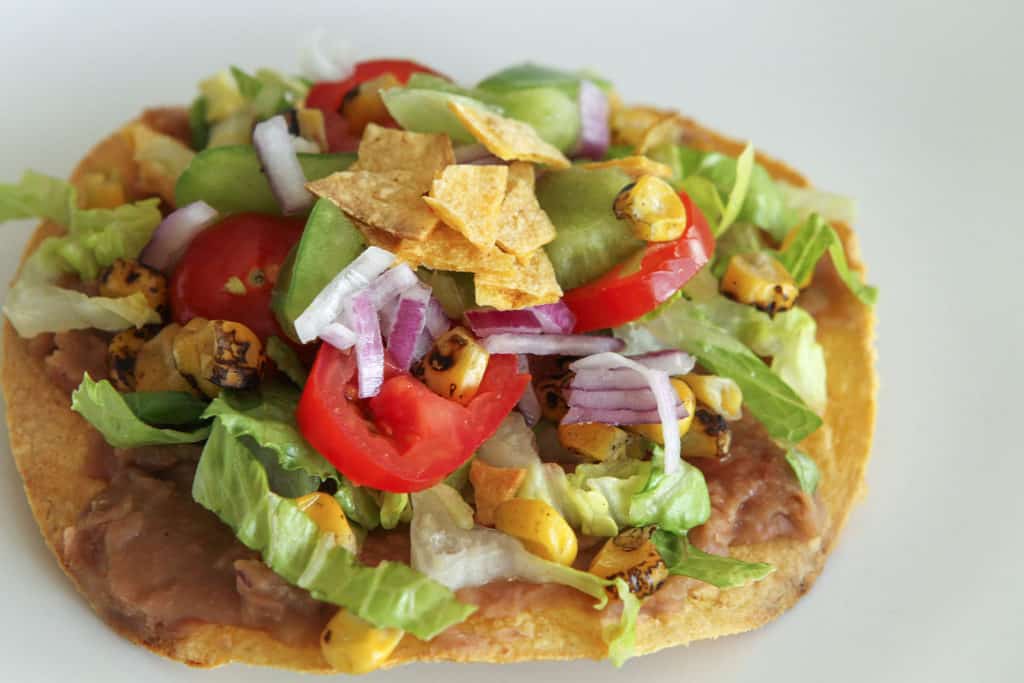
2. Pick one thing to prep for the week
Sometimes we get stuck in the mindset that we are either have to be a prep-everything-on-the-weekend hero, or we just show up at the dinner hour and hope for the best. Not so!
Pick just one category and try putting in the 10-30 minutes it needs on the weekend. Maybe that’s measuring out all your spices and mixing up sauces for the week. Maybe that’s chopping up all the vegetables for dinners. Maybe it’s measuring out all your dry ingredients for muffins/pancakes/cornbread you have on the menu. Or cooking up a batch of brown rice and a dozen sweet potatoes.
Who knows? You might get hooked on it and become one of those weekend meal prep heroes. But even if you just make the rest of the week a bit smoother, you’ll be glad!
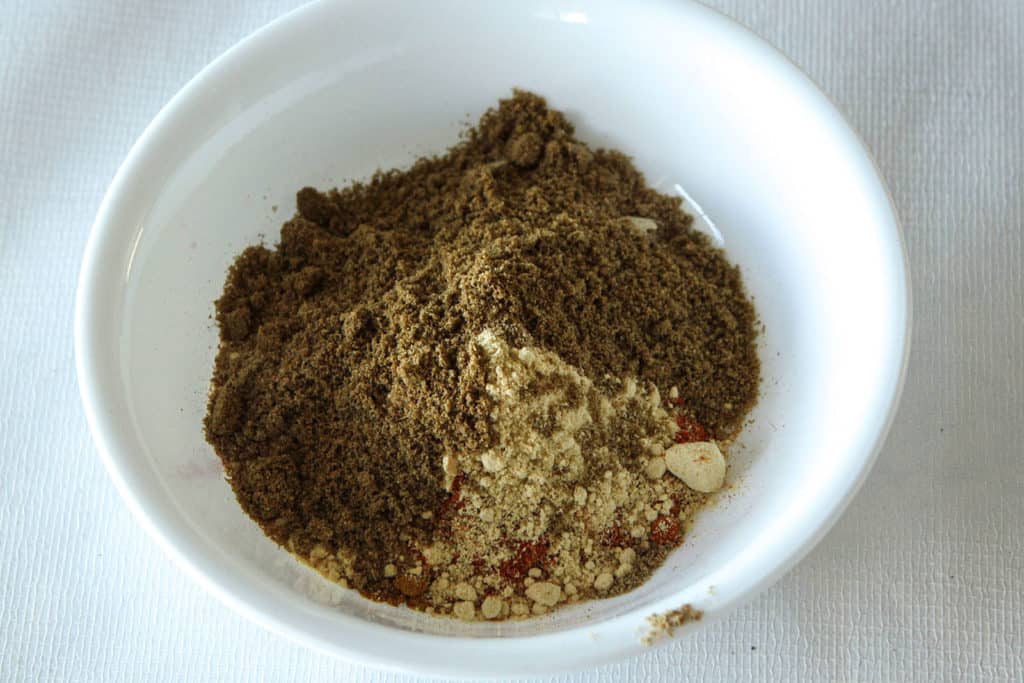
3. Make The Dinner Decision by kitchen cleanup the night before
I plan my week (actually month!) of dinners ahead of time, so I know I have ingredients on hand for a certain list of meals. However, life happens and plans shift and change. We have more or fewer leftovers than I anticipated, meals get shuffled around, maybe I didn’t get to the grocery store when I planned… and I start to get a vague sense of unease when I think about dinner.
What will I make for dinner? Hmmm… let’s see…
I postpone the decision. The unease grows. Suddenly it’s coming up on 6 o’clock and I’m desperately checking my meal plan to see if any meals miraculously take 10 minutes to pull together with zero prep work. (Spoiler: Not many.)
A wise mom told me years ago to decide the night before. Just call it. Maybe it IS off-plan and you’re going to serve cereal for dinner, or maybe you really do need to pay the piper and make that tricky dish you’ve been regretting buying ingredients for. But whatever the reality is, face it by dinner the night before. That brings so much more peace all the next day, along with these bonuses:
You have time to pull something out of the freezer, if you need to, and have it defrost gracefully rather than trying to rush it. (Been there.)
You have time to soak beans.
If you decide before the dinner mess is cleaned up, you can use that cutting board to chop up some more veggies and get a jump on the next night without extra mess.
You’ll know what time to start going on dinner the next day.
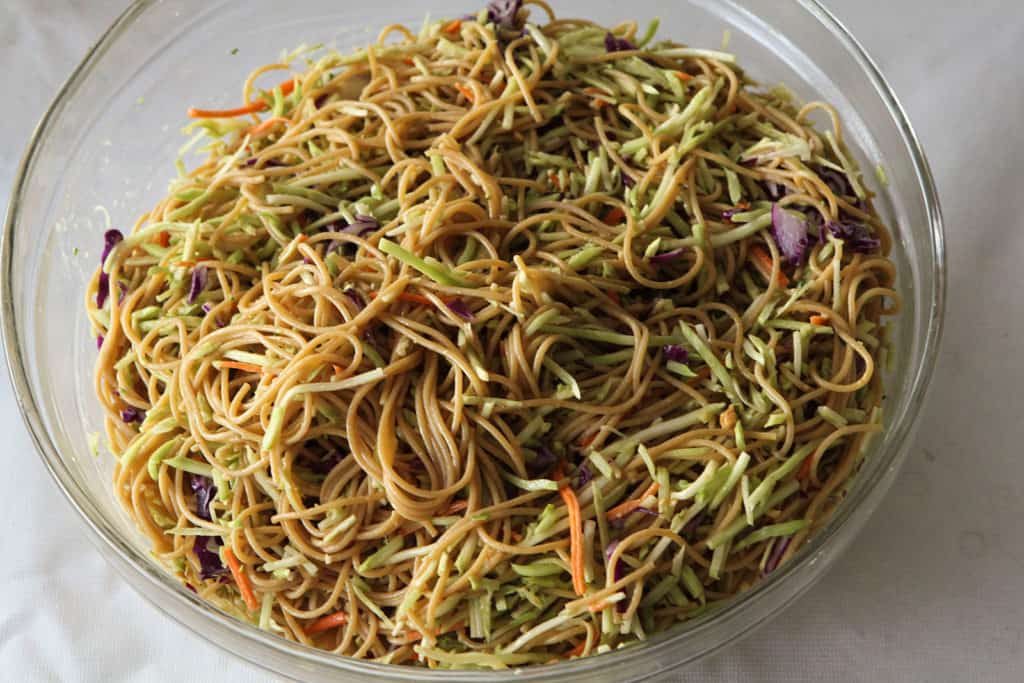
4. Check in with dinner at breakfast
While you’re already in the kitchen, think about dinner. Does something need to go in the crockpot or Instant pot? Do you have a few minutes while the microwave is running or the kids are finishing their bowls of oatmeal that you can use to measure out spices or pull out the boxes of pasta?
Getting started is a mental hurdle sometimes, and if you put 5 or 10 minutes towards it early in the day, it is so much easier to just “finish things up” later.
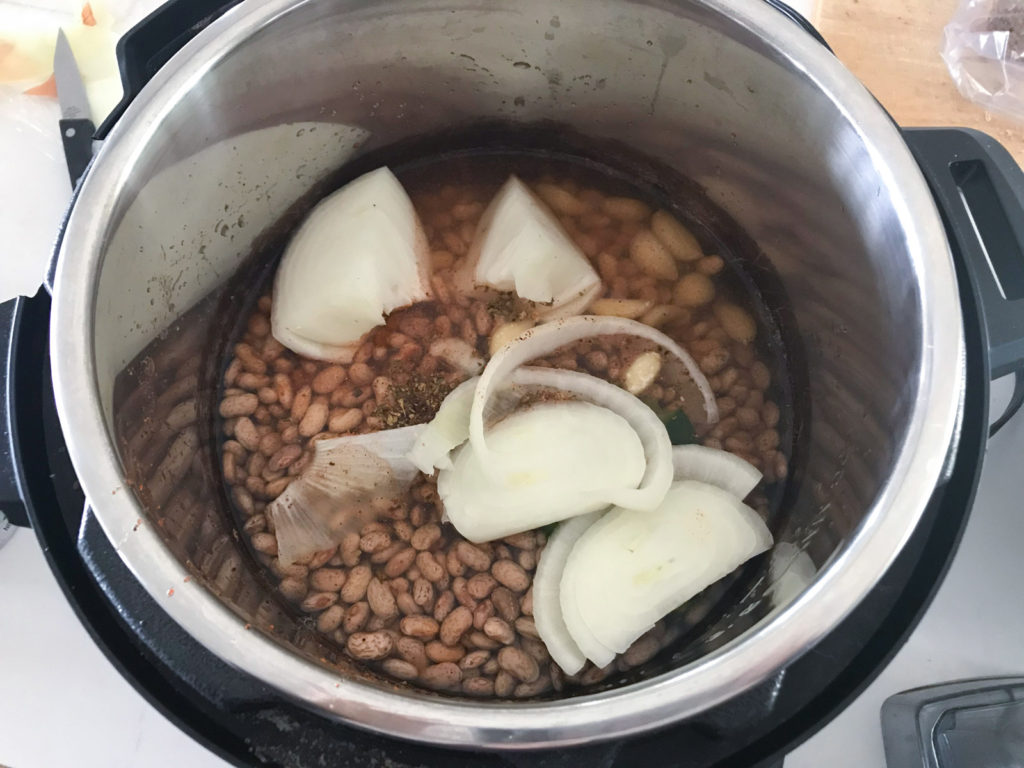
5. Have a few “pantry meals” and “round-up meals” in your pocket
Planning is really only guessing. It’s fairly common around here to end up needing to come up with an extra dinner before we make it to the grocery store, or having some odds and ends of produce leftover after making all the planned meals.
“Pantry meals” or “shelf meals” are ones that you can make using only things you almost always have on hand. No fresh produce required, though I can almost always count on having carrots, celery, and onions because those keep so well. I have a half dozen pantry meal recipes I can pull together to stretch my meal plan until we can grab some more produce.
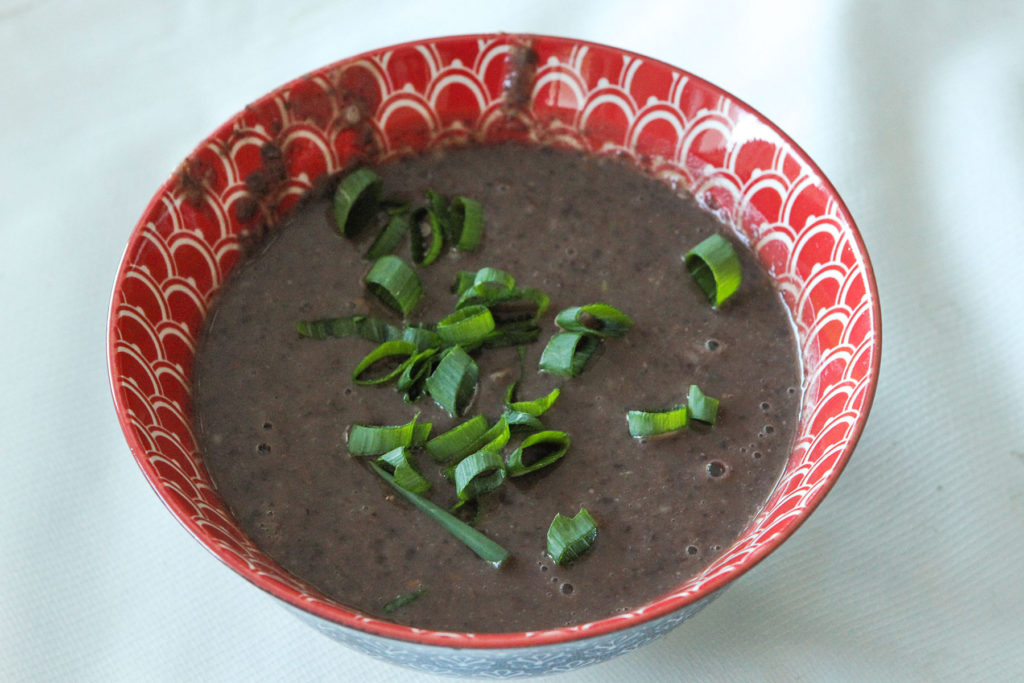
“Round-up meals” are ones that happily accommodate your extra produce so you can avoid food waste and clear the decks for a new meal plan. Think vegetable soup, stir fry, or curry.
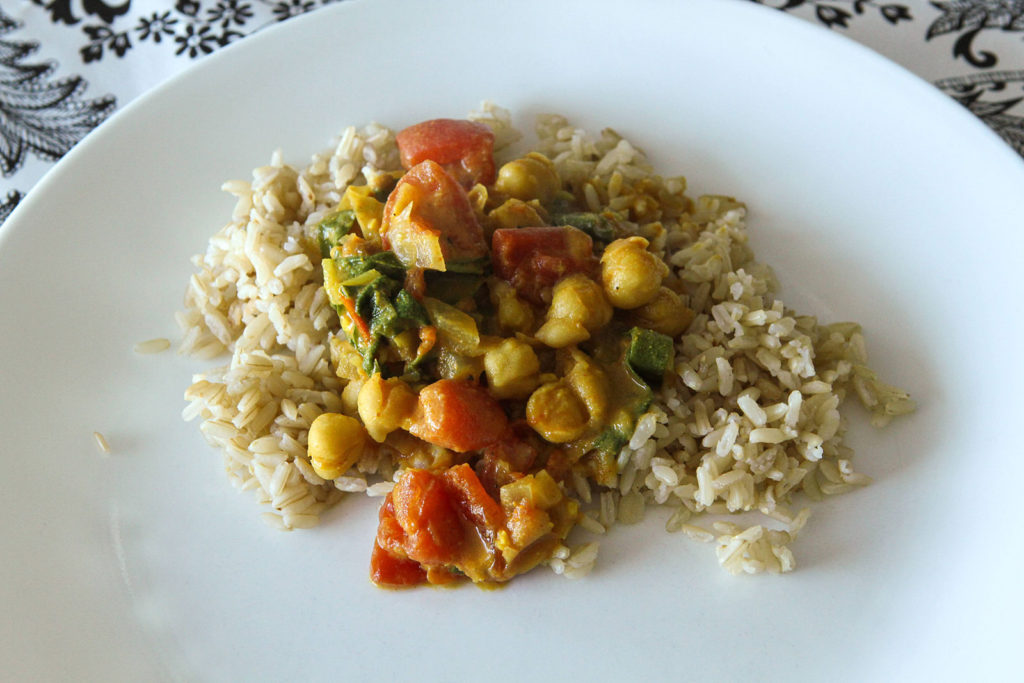
Knowing you can use up that produce or come up with a healthy dinner when your fridge is mostly empty gives peace of mind and saves you from wasted food or extra trips to the store.
Meal plan prizes
There are no gold stars and rarely high fives for executing your meal plan well, but you will get more time to spend enjoying your people and an added measure of peace about how you’re going to fill their bellies with healthy food. Those are pretty solid rewards.

